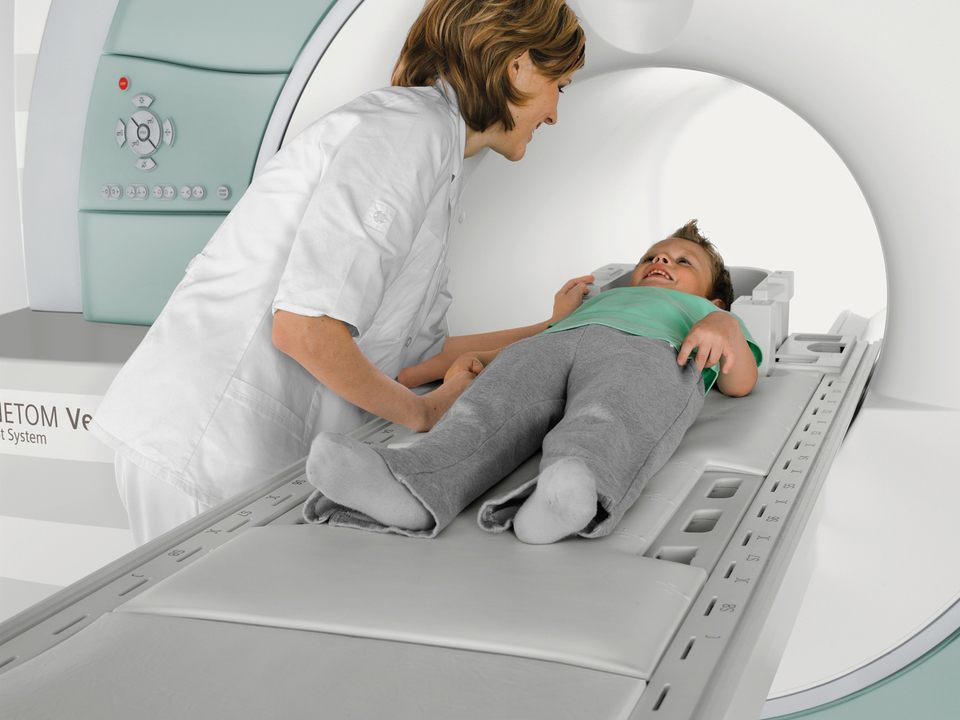CT (Computed Tomography)
Patient Benefits:
- Less time needed for breath-holds
- Shorter exam times
- Less exposure to radiation
- Less intravenous contrast is used
- Same Day appointments
Physician Benefits:
- Clear images improve patient diagnosis
- Same Day Results
- 3D Volume rendering on extremities
- Creatnine available in 2 minutes
What is a CT Scan?
CT (computed tomography) scans use rotating x-ray beams to acquire cross- sectional images of the body. The scan is performed in a ring-shaped machine, usually taking less than a minute to perform. Modern scanners, with the aid of computer systems, can use the cross-sectional images to create 3D images of the internal organs. The images are then reviewed by a radiologist.
Our new 40 detector Somatom Sensation CT demonstrates leadership in innovative technology and clinical applications never before achieved. Somatom Sensation allows for maximal diagnostic detail at the fastest acquisition speed and the lowest possible radiation dose. Our computer-assisted reading tools also enable early detection, fast evaluation, and precise follow-up of disease with all information available at the scanner before the patient is off the table.
This CT scan provides a high resolution image of the body and is currently the preferred method for diagnosing many diseases and injuries. CT scans can also be used for pre-operative planning and to monitor recovery from illness. It is also an excellent method of assessing atherosclerotic disease. The images can be printed on x-ray film or burned to a compact disc to distribute to other physicians.
Many types of CT scans do not require patient preparation, but some require either an oral dose or an IV injection of contrast material (x-ray dye). Contrast provides improved definition of the internal organs and increases the sensitivity of the scan in terms of detecting some diseases.
Exam Prep
Abdominal and/or Pelvic CT – No food or drink after midnight, except water to take medications. Must consume one bottle of oral contrast the night prior to your exam and a second bottle of contrast one hour before your appointment. (Please call or stop by our office to pick up your contrast).
No preparation is needed for the following studies:
CT Angiograms
Head CT
Chest CT
Extremity CT

